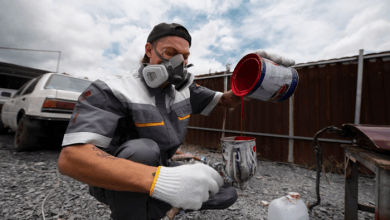
Insulation plays a crucial role in maintaining a comfortable and energy-efficient home. Properly installed insulation can significantly reduce heating and cooling costs while enhancing indoor comfort year-round. Top-rated insulation contractors possess the expertise and experience to implement effective insulation solutions tailored to each home’s unique needs.
These professionals offer a range of insulation options, including fiberglass, cellulose, and spray foam. They assess a home’s current insulation levels and recommend improvements to maximize energy efficiency. By sealing air leaks and installing high-quality insulation materials, contractors help homeowners create a more consistent indoor temperature and reduce their carbon footprint.
Investing in professional insulation services can lead to long-term savings on utility bills and improved home comfort. Experienced contractors ensure proper installation techniques are used, preventing common issues like moisture buildup or inadequate coverage. Their knowledge of building codes and energy-efficient practices helps homeowners achieve optimal results from their insulation upgrades.
Understanding Insulation and Energy Efficiency
Proper insulation is crucial for maintaining a comfortable home environment and reducing energy costs. With Sheffield electricity rates continuing to put pressure on household budgets, effective insulation is one of the most impactful ways to lower energy consumption. It helps regulate indoor temperatures and prevents heat transfer between the interior and exterior of a building.
The Science of Insulation and Thermal Performance
Insulation works by slowing the transfer of heat through conduction, convection, and radiation. The effectiveness of insulation is measured by its R-value, which indicates its resistance to heat flow. Higher R-values signify better insulating properties.
Heat naturally moves from warmer to cooler areas. Insulation creates a barrier that reduces this transfer, keeping warm air inside during winter and outside during summer.
Air pockets within insulation materials trap heat, further improving thermal performance. This principle applies to various insulation types, from traditional fiberglass batts to modern spray foam solutions.
Among the top insulation contractors, https://vanceinsulation.com/ stands out for its commitment to enhancing energy efficiency in residential and commercial properties. By utilizing cutting-edge materials and innovative techniques, they ensure optimal thermal performance, reducing energy consumption and lowering utility bills. Their expert team conducts thorough assessments to tailor solutions that meet specific needs, ensuring long-term savings and comfort. As energy efficiency becomes increasingly crucial, choosing a contractor that prioritizes sustainable practices is essential. This approach not only benefits the environment but also adds value to properties, making it a wise investment for the future.
Assessing Your Home’s Insulation Needs
Evaluating a home’s insulation requirements involves several factors. Climate, building design, and existing insulation all play roles in determining the most effective insulation strategy.
Home energy audits can identify areas of heat loss and air leaks. These assessments often use tools like infrared cameras to detect temperature variations in walls, ceilings, and floors.
Common problem areas include attics, walls, floors, and basements. Proper insulation in these spaces can significantly improve a home’s energy efficiency.
Addressing drafts and air leaks is equally important. Sealing gaps around windows, doors, and other openings complements insulation efforts and enhances overall thermal performance.
Different Types of Insulation Materials
Fiberglass insulation remains a popular choice due to its affordability and effectiveness. It comes in batts or rolls and can be easily installed in walls, attics, and floors.
Cellulose insulation, made from recycled paper products, is an eco-friendly option. It’s often used as blown-in insulation for attics and existing wall cavities.
Spray foam insulation offers excellent air-sealing properties. It expands to fill gaps and cracks, creating an effective barrier against heat transfer and air leakage.
Radiant barriers, typically installed in attics, reflect heat away from living spaces. They’re particularly useful in hot climates to reduce cooling costs.
Each insulation type has its strengths and ideal applications. Choosing the right material depends on factors such as installation location, desired R-value, and budget considerations.
Selecting and Working with Insulation Contractors
Choosing the right insulation contractor is crucial for maximizing your home’s energy efficiency and comfort. Professional installation ensures optimal performance and long-lasting results.
The Role of Professional Insulation Services
Insulation contractors provide specialized expertise in selecting and installing the most suitable materials for your home. They assess your property’s unique needs, considering factors like climate, building structure, and existing insulation. Professional services often include:
- Energy audits to identify areas of heat loss
- Recommendations for insulation types and R-values
- Proper installation techniques to maximize effectiveness
- Air sealing to prevent drafts and moisture issues
Expert installers use advanced equipment and methods to ensure thorough coverage. They also handle safety concerns, such as dealing with asbestos in older homes.
Finding the Right Insulation Expert for Your Project
Locating a reliable insulation contractor requires research and due diligence. Start by:
- Seeking recommendations from friends, family, or local home improvement stores
- Checking online reviews and ratings from previous customers
- Verifying licenses, insurance, and certifications
- Requesting multiple quotes for comparison
Look for contractors with experience in your specific type of project, whether it’s attic insulation, wall insulation, or whole-home solutions. Ask about their warranty offerings and post-installation support.
Ensuring Quality in Insulation Installation
Quality installation is key to achieving optimal insulation performance. To ensure the best results:
- Discuss the installation process in detail before work begins
- Ask about the materials being used and their R-values
- Ensure proper safety measures are in place during installation
- Request a final inspection and energy assessment post-installation
Reputable contractors will provide clear communication throughout the project. They should be willing to address any concerns and explain the benefits of their recommended solutions. A thorough clean-up after installation is also a sign of a professional service.




